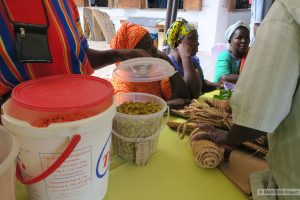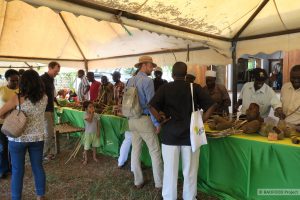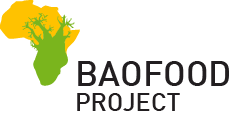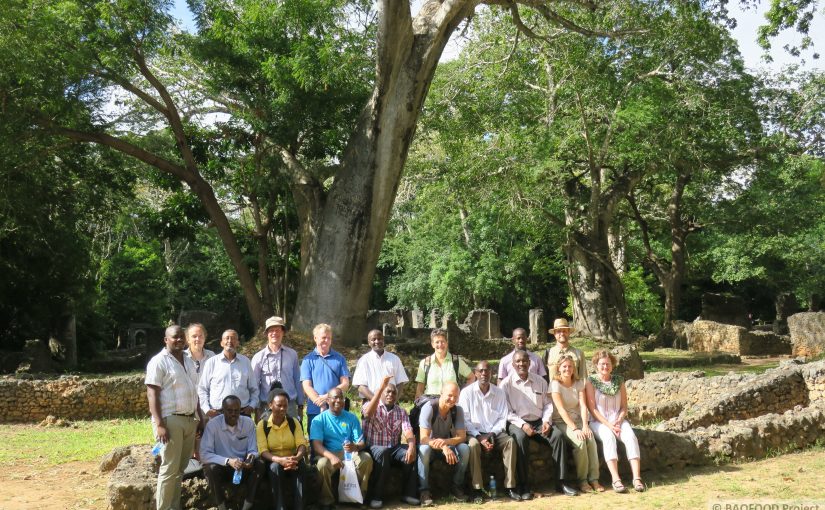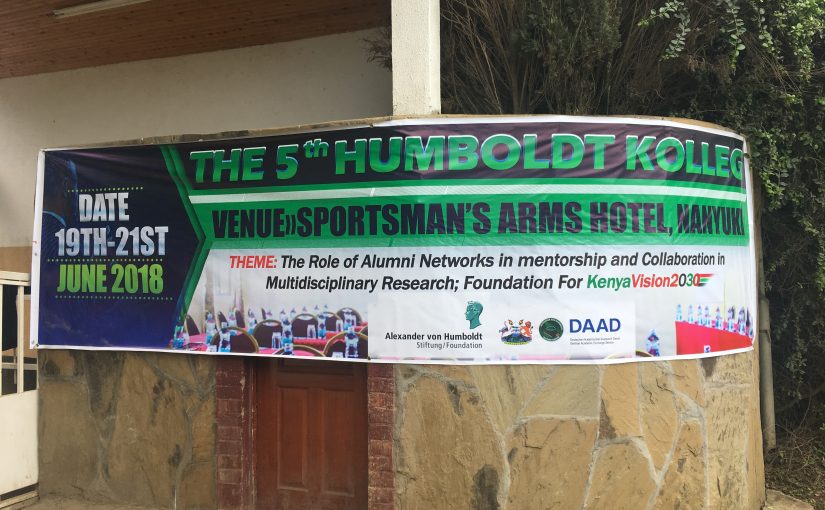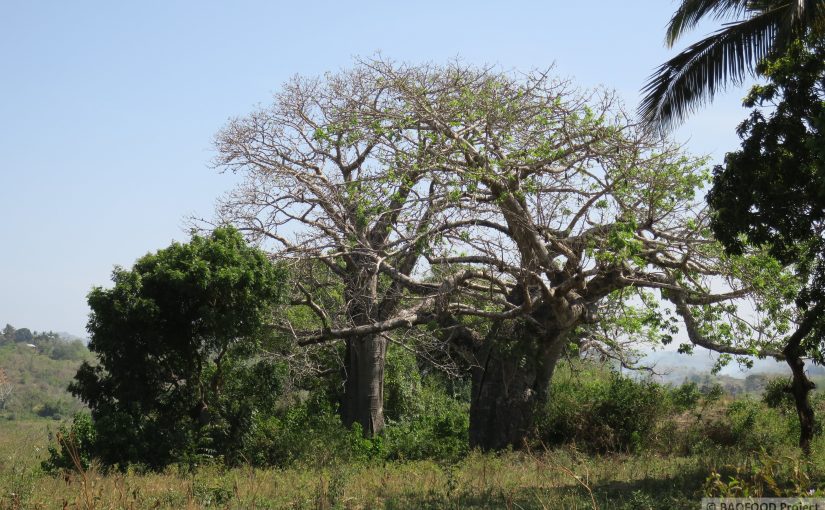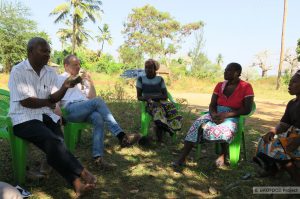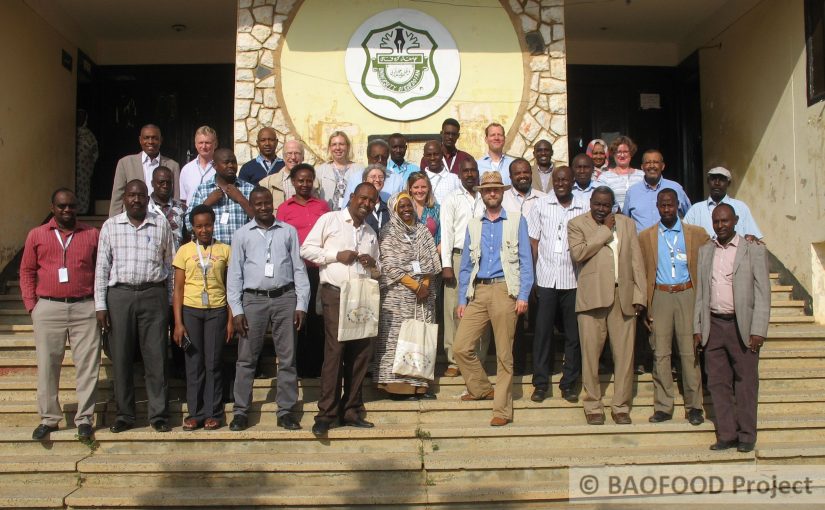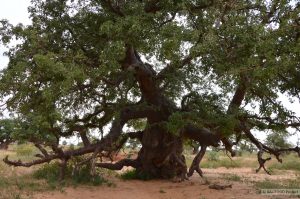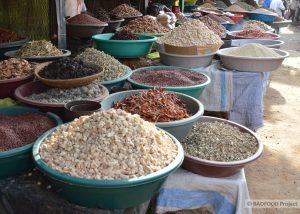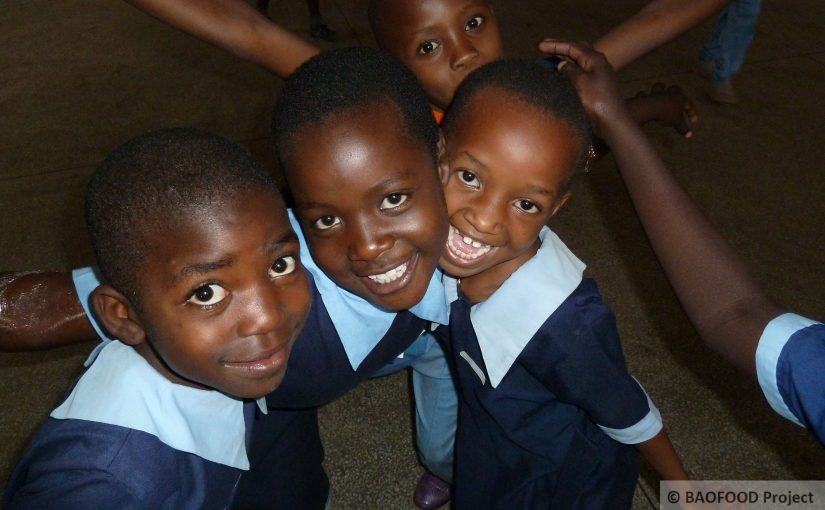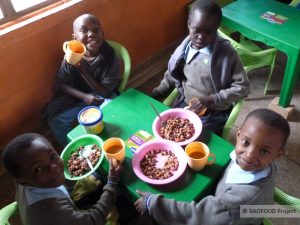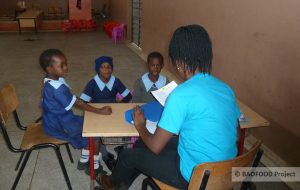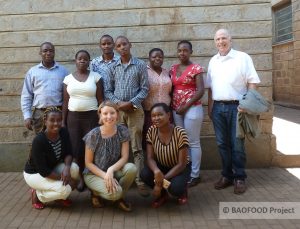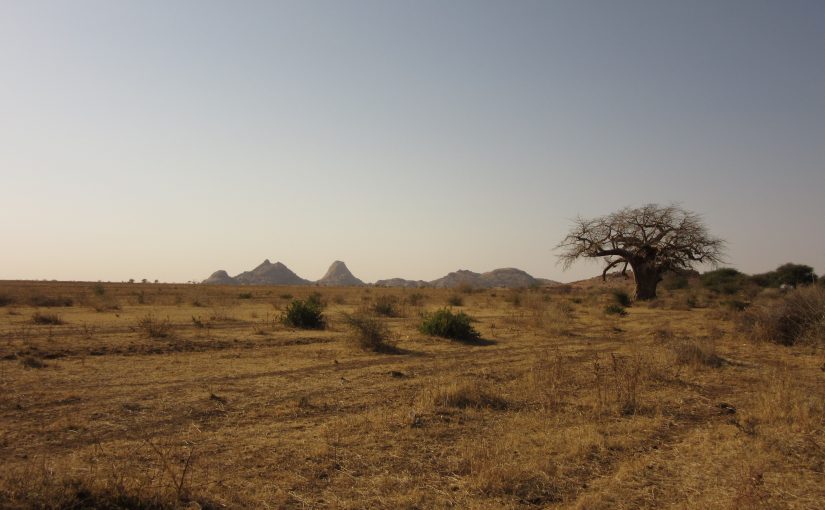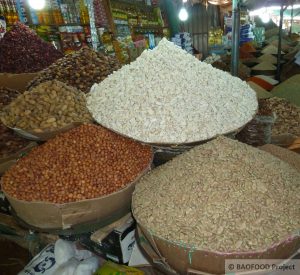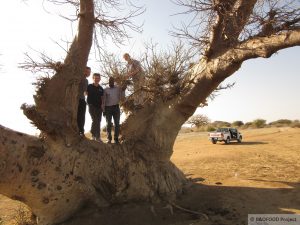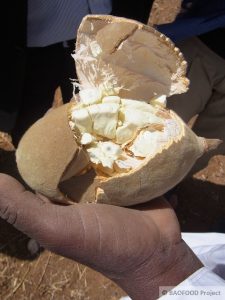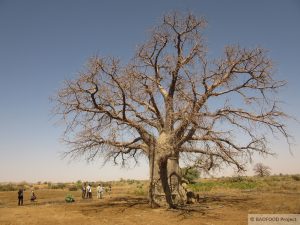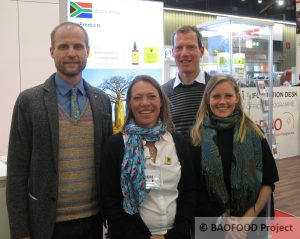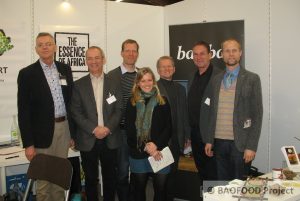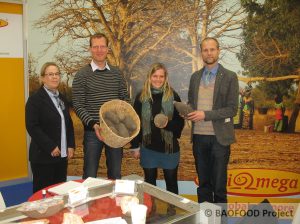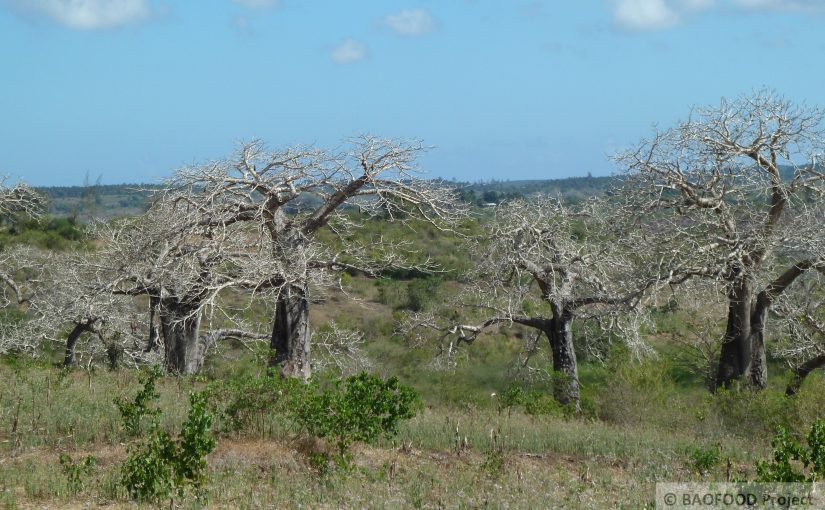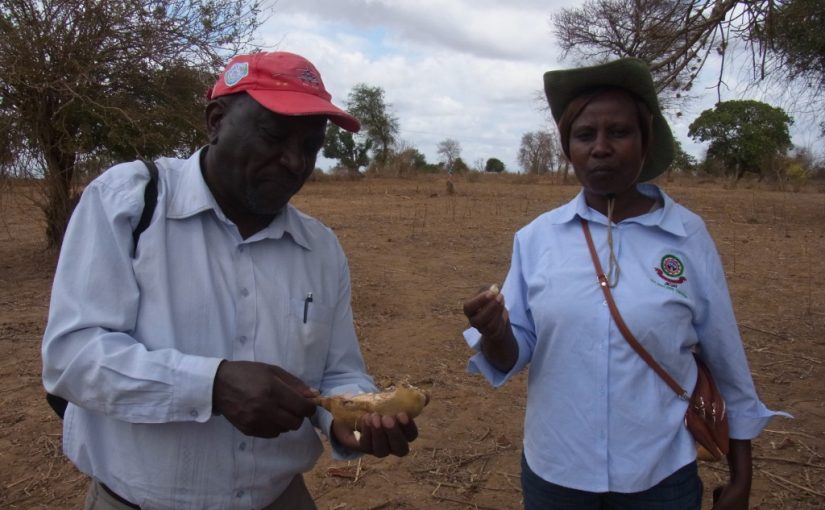The BAOFOOD project partners met in Kilifi, Kenya, to discuss the progress of the project and the necessary next steps. Results from ongoing research activities were presented and upcoming surveys discussed amongst the different work streams in order to be able to finalize the project in 2019.
The site of the pilot plant was visited where construction works have already started to set up the community-based baobab processing facility for the production of high-quality baobab powder and oil with and for the local communities. This was alongside an open-day where members from the local communities showcased currently available local baobab products. Furthermore, new baobab food products such as cookies, curry sauces and savory pancakes with a potential for the local market were presented and tested.
